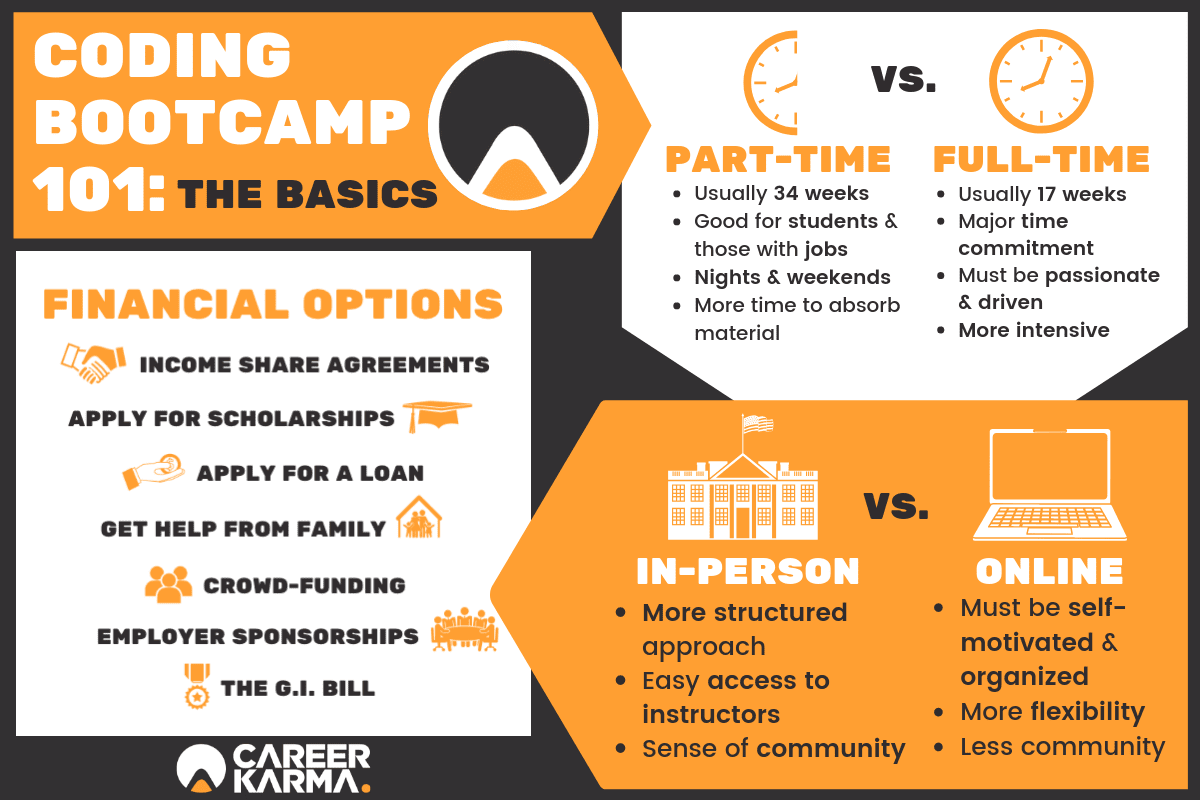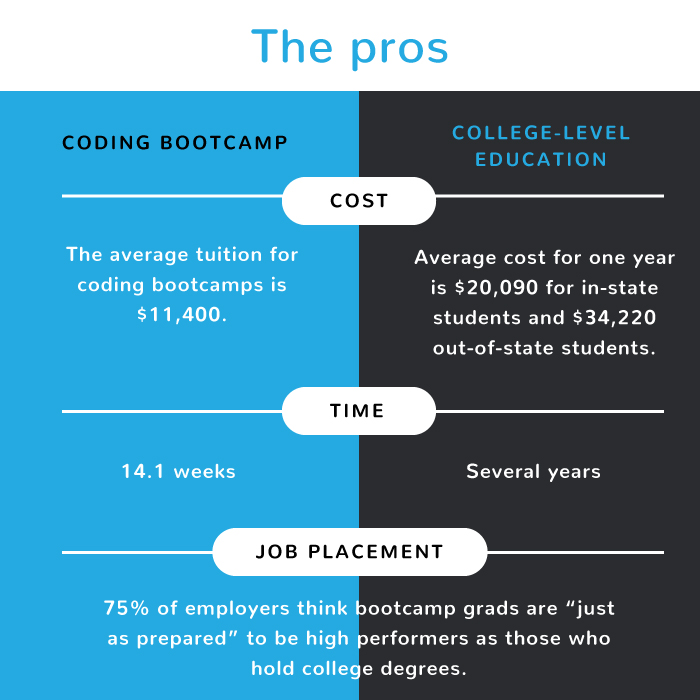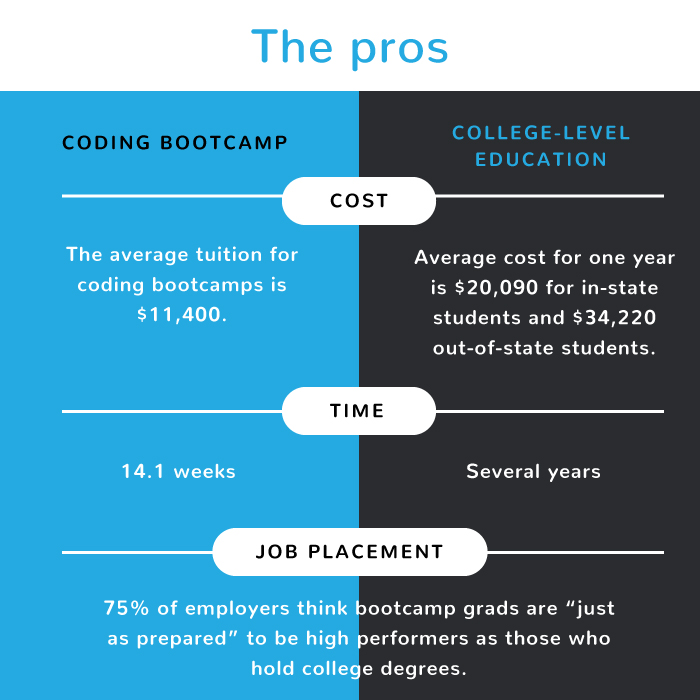High Cost and Return on Investment: Why Coding Bootcamps Don’t Work

The allure of a quick path to a lucrative tech career is a powerful draw for many considering coding bootcamps. However, a critical examination reveals a significant disparity between the promised returns and the actual financial realities for many graduates. The high cost of tuition, coupled with hidden expenses and a potentially saturated job market, necessitates a careful evaluation of the return on investment (ROI) before enrollment.
Bootcamp tuition fees vary considerably, ranging from several thousand to upwards of $20,000 depending on the institution, program length, and location. This significant upfront investment is often presented as a worthwhile expenditure considering the potential for substantial salary increases after graduation. However, the advertised average salary increases reported by bootcamps often fail to account for several key factors.
Bootcamp Costs and Average Graduate Salaries
The advertised average salary increase following bootcamp completion frequently overlooks the significant hidden costs associated with the program. These include living expenses during the intensive course, the cost of purchasing necessary software and hardware, and potential lost income from foregoing employment during the program. These additional expenses can easily add thousands of dollars to the overall cost, significantly impacting the actual ROI. For instance, a student living in a high-cost city like San Francisco might spend $3,000-$5,000 per month on rent and living expenses during a 3-month bootcamp, adding $9,000-$15,000 to the tuition cost. Furthermore, the purchase of a new laptop, specialized software licenses, and other learning materials can easily add another $1,000-$2,000 to the total.
Job Market Saturation and Displacement, Why coding bootcamps don’t work
The tech industry, while experiencing continued growth, is also subject to fluctuations and periodic downturns. The influx of graduates from numerous coding bootcamps, coupled with established professionals seeking new roles, creates a competitive job market. This saturation can lead to lower starting salaries than advertised or difficulties in securing employment altogether, diminishing the potential ROI for bootcamp graduates. For example, the increase in junior developer positions filled by bootcamp graduates in certain cities has led to a slight decrease in average starting salaries in some specific specializations, compared to those with traditional computer science degrees. This increased competition also makes it harder for bootcamp graduates to stand out from more experienced candidates or those with formal education.
Comparative Analysis of Bootcamp ROI
The following table illustrates a hypothetical comparison of three different bootcamps, highlighting the variability in costs, average graduate salaries, and the potential impact of job market saturation. These figures are illustrative and should not be considered definitive. Actual results will vary based on individual circumstances and market conditions.
| Bootcamp | Tuition | Average Graduate Salary | Potential Job Market Impact |
|---|---|---|---|
| Bootcamp A | $12,000 | $70,000 | Moderate competition; potential for lower starting salary |
| Bootcamp B | $18,000 | $85,000 | High competition; potential for difficulty securing employment |
| Bootcamp C | $6,000 | $60,000 | Lower starting salary expected due to lower program cost and potential skills gap |
Curriculum Gaps and Lack of Practical Experience

Coding bootcamps, while offering a rapid pathway into the tech industry, often fall short in adequately preparing students for the realities of professional software development. The intensive, compressed curriculum, while aiming for speed, can inadvertently sacrifice depth and practical application, leaving graduates with significant skill gaps compared to traditionally trained developers. This section will examine the discrepancies between bootcamp curricula and the actual demands of entry-level developer roles.
The fast-paced nature of bootcamps necessitates a streamlined curriculum, often prioritizing breadth over depth. This can result in a superficial understanding of fundamental concepts, hindering a graduate’s ability to apply their knowledge to complex, real-world problems. While graduates may be able to complete coding exercises within the bootcamp environment, they may lack the problem-solving skills and critical thinking needed to navigate the challenges of professional software development. This is further compounded by the limited time allocated for individual projects and practical application.
Comparison of Bootcamp Curricula and Industry Demands
Bootcamp curricula often prioritize specific technologies and frameworks that are popular at the time of the course, but these technologies can quickly become outdated. The rapid pace of technological advancement means that what’s taught in a bootcamp might not be what’s currently in demand by employers. Furthermore, bootcamps often lack the breadth of knowledge required for a full-stack developer role, focusing instead on a narrower set of skills. This specialization, while potentially beneficial in certain niche areas, can limit a graduate’s employment options.
- Bootcamp Focus: Specific frameworks (e.g., React, Angular, Node.js) and rapid prototyping. Emphasis on building functional applications quickly, often sacrificing code quality and maintainability.
- Industry Demand: Strong foundation in computer science principles (data structures, algorithms, design patterns), proficiency in multiple programming languages, experience with version control (Git), and understanding of software development lifecycle (SDLC).
- Bootcamp Focus: Limited exposure to database management systems (DBMS) beyond basic CRUD operations.
- Industry Demand: Deep understanding of database design, optimization, and query languages (SQL, NoSQL). Experience with different database systems (e.g., MySQL, PostgreSQL, MongoDB).
- Bootcamp Focus: Introduction to testing frameworks but often limited practical application.
- Industry Demand: Proficiency in writing unit tests, integration tests, and end-to-end tests. Understanding of testing methodologies and best practices.
Examples of Rarely Used Bootcamp Skills in Real-World Development
Some bootcamps might teach specialized or niche technologies that are not widely used in the industry. For instance, a bootcamp might focus heavily on a specific JavaScript framework that’s popular within a small community but not widely adopted by major companies. Similarly, some bootcamps might spend significant time on esoteric programming languages or tools that are rarely used in professional settings. This can lead to a mismatch between the skills taught and the skills required for actual jobs. The time spent mastering these niche technologies could have been better used to build a stronger foundation in core computer science principles and widely used technologies.


Tim Redaksi